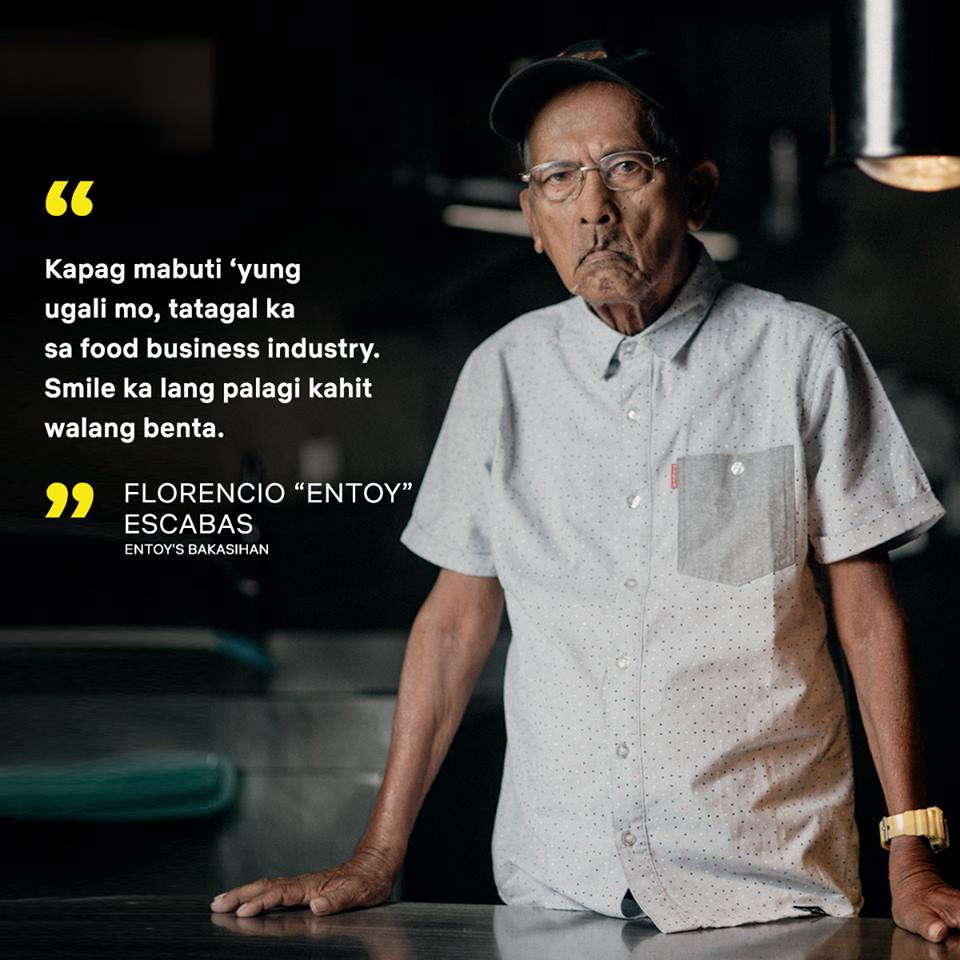Entertainment
Erik Matti slams Netflix’s ‘Street Food:’ Bad research

FILE: Come for the street food, stay for their stories. Meet Entoy, Leslie, Ian, and Rubilyn – the Cebuanos championing Filipino dishes to a global palate. Street Food is now streaming. (Photo: Netflix)
Filmmaker Erik Matti took to social media to express his disappointment on a new documentary series on Netflix that features street food culture in nine cities in Asia.
The ninth episode of “Street Food” gives the limelight to the Philippines’ own Cebu City, but Erik was not happy with what the show chose to showcase from the city.
“There are hundreds of original Filipino street food and they chose to show an esoteric eel dish and a goddamn Chinese fried vegetable lumpia! Whada₱@ck,” Erik wrote in his Instagram post.
The show travels to Thailand, Japan, India, Indonesia, Taiwan, South Korea, Vietnam, and Singapore in its first episodes to feature not only its food but also those people behind those flavorful dishes. Erik said the docu-series was able to highlight the “classic world-renowned street food” of those countries, but what they have shown from the Philippines was a “bizarre” one.
“The #Cebu episode of #StreetFood at @netflixph borders on poverty porn. The dishes except for lechon are food that are not really a staple of Filipinos,” he said, adding that the program has done “bad research.”
While some netizens air the same sentiments with Erik, his remarks, however, did not sit well with others, noting that the episode focuses only in the Queen City of the South and not the entire Philippines.
“I think the show was about Cebu street food and not Luzon food? Or Filipino food? Hahaha you are the perfect example of CRAB MENTALITY,” netizen @evan_zan told the director.
Instagram user @thirdworldnooknerd, meanwhile, said he loves Erik’s works, but describing Cebu’s street food “bizarre” and “borderline poverty porn” only shows “how little” he did his research.
“These are quintessential Cebuano street food,” the netizen stressed.
Responding to criticisms thrown at him, Erik took to Twitter to defend his words.
“I am not saying Cebu food is not good. I love Cebu food. The eel bakasi is just not IDENTIFIABLY regarded as a quintessential Filipino street food that can represent our food to the world,” he said.
He added on another tweet, “The question I wanted to ask was: given all street food in Cebu and the entire Philippines, is the eel bakasi the best and most important street food to showcase from our country to the world?”
Twitter user @miguelabgarcia responded to Erik’s tweet, saying he sympathized the filmmaker’s question on identification and representation, but “Street Food” is not a “tourism video.”
“That’s DOT’s (Department of Tourism’s) job, not Netflix. Go ask DOT then,” he tweeted.
The episode nine of “Street Food” hears the unsung stories of four Cebuano culinary heroes: Florencio “Entoy” Escabas who runs a small eatery that became popular in his town for serving Bakasi or reef eel, Leslie Enjambre who has a ‘lechon’ business which started by her grandmother in 1940s, Ian Secong — an owner of a restaurant that serves a dish called Tuslob-Buwa, and Rubilyn Manayon who has a carinderia known for its vegetable lumpia.
The show premiered on the streaming giant last April 26.





















